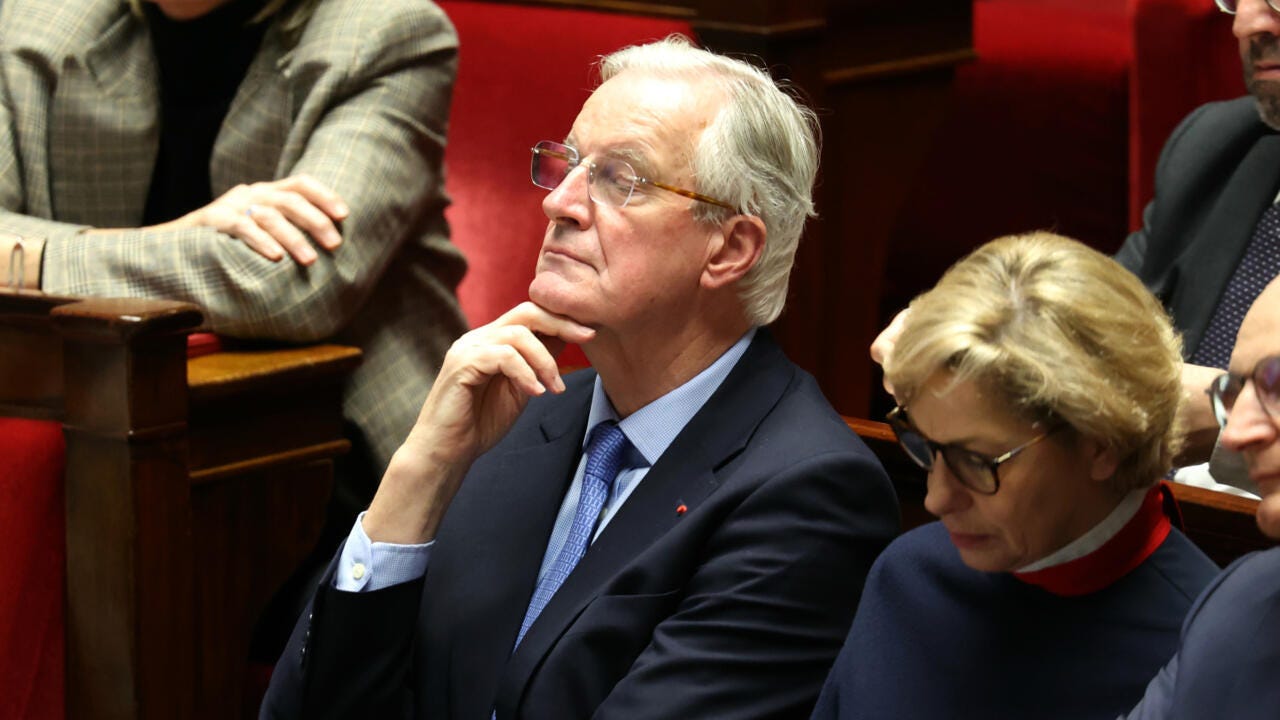Into Instability
Three States: France, Georgia and South Korea in stories of instability
French government falls in historic no-confidence vote
For the first time in over sixty years, the National Assembly lower house toppled the incumbent government, approving a no-confidence motion that had been proposed by the hard left but which crucially was backed by the far-right headed by Marine Le Pen.
Barnier's rapid ejection from office comes after…



